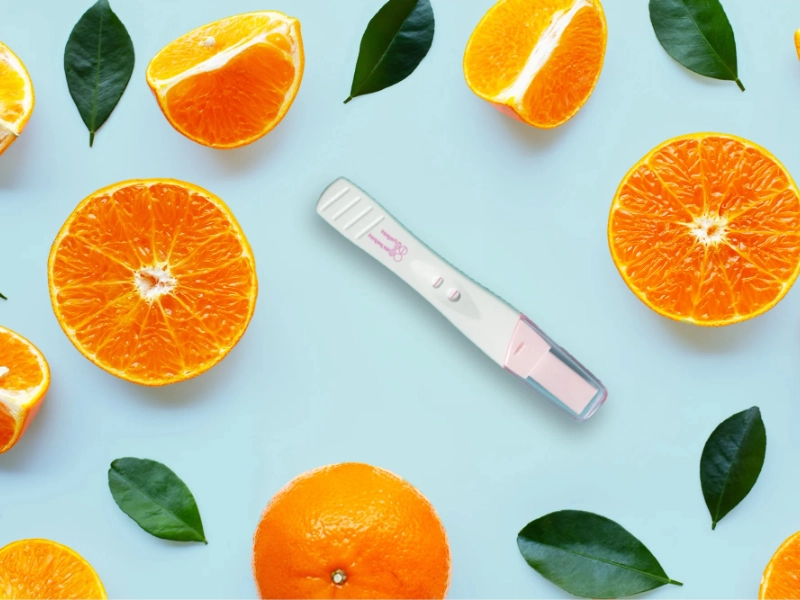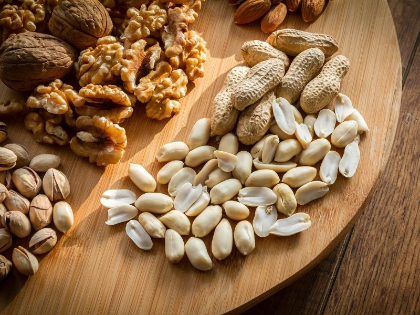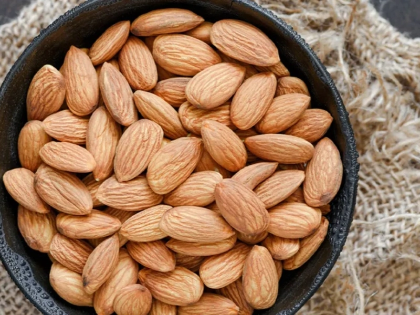Vitamin C: Essential Nutrient for Pregnant and Nursing Mothers
1.The Value of Vitamin C Particularly for pregnant and nursing mums, vitamin C—also known as ascorbic acid—is a critical component with many different functions in preserving health. The mother's as well as the child's development depends on this water-soluble vitamin. Particularly crucial during these times when the body is undergoing major changes, enough vitamin C during pregnancy and lactation boosts the immune system, enhances good skin, and helps the iron to be absorbed.
2. Advantages for expectant mothers The development of the foetus depends on vitamin C, which pregnant women especially need. It helps collagen to develop—which is essential for the growth of the baby's skin, cartilage, and bones. Furthermore crucial for brain growth are neurotransmitters, which are synthesised in part by vitamin C. Vitamin C's antioxidant qualities also guard the mother and the growing foetus from oxidative stress, which can cause problems during pregnancy.

 5. advantages for nursing mothers Vitamin C is still vital for nursing mothers since it keeps supporting the mother's health as well as the growth of the baby. For newborns, breast milk is a major source of nourishment; thus, good vitamin C levels in the mother guarantees that her milk is high in this vital element. Nursing women should keep enough levels of vitamin C since it helps the immune system development and general growth of the infant.
6. Suggested Daily Consume Pregnancy and lactation affect the advised daily consumption of vitamin C. While nursing mothers need roughly 120 mg daily, pregnant women should try for about 85 mg daily. Usually, a balanced diet high in fruits and vegetables will help one meet these levels. considerable women, particularly those with dietary restrictions or higher demands, could have to give supplements considerable thought though.
5. advantages for nursing mothers Vitamin C is still vital for nursing mothers since it keeps supporting the mother's health as well as the growth of the baby. For newborns, breast milk is a major source of nourishment; thus, good vitamin C levels in the mother guarantees that her milk is high in this vital element. Nursing women should keep enough levels of vitamin C since it helps the immune system development and general growth of the infant.
6. Suggested Daily Consume Pregnancy and lactation affect the advised daily consumption of vitamin C. While nursing mothers need roughly 120 mg daily, pregnant women should try for about 85 mg daily. Usually, a balanced diet high in fruits and vegetables will help one meet these levels. considerable women, particularly those with dietary restrictions or higher demands, could have to give supplements considerable thought though.
 7. Vitamin C Dietary Sources Including foods high in vitamin C into the diet will help one satisfy daily needs. Perfect sources of vitamin C are fruits including oranges, strawberries, kiwi, and guava. Also rather high are vegetables such bell peppers, broccoli, and spinach. Including a range of these items in regular meals can help guarantee enough consumption of this vital nutrient.
8. Possible Hazards from a Vitamin C Deficiency Deficiency of vitamin C during pregnancy and lactation can cause many medical problems. Mothers may experience compromised immunity, more susceptibility to infections, and gestational hypertension among other things. Lack of vitamin C can affect the growth and development of newborns, hence causing scurvy—a disorder marked by bleeding gums, tiredness, and skin problems. Maintaining appropriate vitamin C levels is thus absolutely vital.
7. Vitamin C Dietary Sources Including foods high in vitamin C into the diet will help one satisfy daily needs. Perfect sources of vitamin C are fruits including oranges, strawberries, kiwi, and guava. Also rather high are vegetables such bell peppers, broccoli, and spinach. Including a range of these items in regular meals can help guarantee enough consumption of this vital nutrient.
8. Possible Hazards from a Vitamin C Deficiency Deficiency of vitamin C during pregnancy and lactation can cause many medical problems. Mothers may experience compromised immunity, more susceptibility to infections, and gestational hypertension among other things. Lack of vitamin C can affect the growth and development of newborns, hence causing scurvy—a disorder marked by bleeding gums, tiredness, and skin problems. Maintaining appropriate vitamin C levels is thus absolutely vital.
 9. Suggestions for Supplementation Although food sources provide excellent vitamin C, some women could require supplements to satisfy their dietary requirements. Before beginning any supplements, one should see a healthcare professional since too high vitamin C intake might cause stomach problems and other problems. Based on personal health requirements and eating patterns, a healthcare provider might offer tailored advice.
10. A synopsis of vitamin C's significance Pregnant and nursing women should especially focus on vitamin C since it is a basic vitamin that supports both mother and foetus health. Its advantages span immune system enhancement to iron absorption improvement to healthy development encouragement. During these important times, it is imperative to guarantee enough vitamin C intake by a balanced diet high in fruits and vegetables. Mothers can help their health and the welfare of their developing infants by giving this vital vitamin top priority.
9. Suggestions for Supplementation Although food sources provide excellent vitamin C, some women could require supplements to satisfy their dietary requirements. Before beginning any supplements, one should see a healthcare professional since too high vitamin C intake might cause stomach problems and other problems. Based on personal health requirements and eating patterns, a healthcare provider might offer tailored advice.
10. A synopsis of vitamin C's significance Pregnant and nursing women should especially focus on vitamin C since it is a basic vitamin that supports both mother and foetus health. Its advantages span immune system enhancement to iron absorption improvement to healthy development encouragement. During these important times, it is imperative to guarantee enough vitamin C intake by a balanced diet high in fruits and vegetables. Mothers can help their health and the welfare of their developing infants by giving this vital vitamin top priority.







